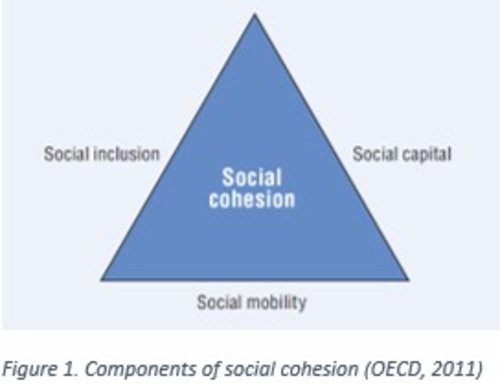Sport for social cohesion: a conceptual framework linking common practices and theory
Key facts
Identity/feeling of belonging
Participation
Orientation towards the common good
Solidarity
Shared values
Cooperation
Tolerance
Connectedness
Development cooperation
Summary
Sport for development (SFD) has become an increasingly well-defined field of academic inquiry, and numerous related theories have emerged. Existing theories have however been critcised for their lack of interdisciplinary engagement, lack of connection to specific outcome areas and challenges translating to practice. These issues are especially evident concerning the linkages between sport and social cohesion. Sport has been prominently positioned as a vehicle to promote social cohesion, yet the term remains vaguely defined and programme practices are underreported. The following paper seeks to address this by presenting a conceptual framework linking common practices, mechanisms and social cohesion outcomes. Findings from literature and previous work are contextualised against existing theories, allowing practices to be connected to mechanisms and specific social cohesion outcomes. In turn, this framework can help provide practical guidance to implementers, support programme design, and identify areas for future development.



